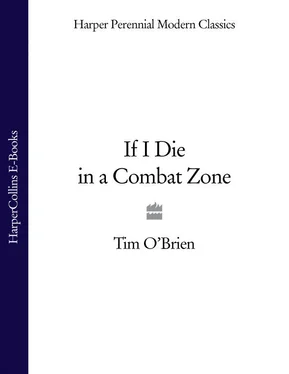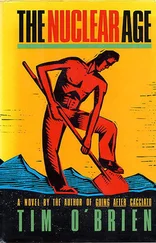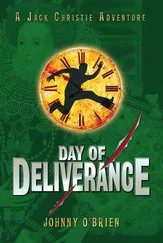We found a private place to talk, out behind the barracks. There was a log there. It was twice the thickness of an ordinary telephone pole and perhaps a fourth of its length, and on an afternoon in September Erik and I were sitting on that log, polishing boots, cleaning out M-14s and talking poetry. It was a fine log, and useful. We used it for a podium and as a soapbox. It was a confessional and a shoeshine stand. It was scarred. A hundred waves of men had passed through the training company before us; no reason to doubt that a hundred waves would follow.
On that September afternoon Erik smeared black polish on the log, marking it with our presence, and absently he rubbed at the stain, talking about poems. He explained (and he’ll forgive my imprecise memory as I quote him now): ‘Frost, by just about any standard, is the finest of a good bunch of American poets. People who deprecate American poetry need to return to Robert Frost. Then, as I rank them – let’s see – Marianne Moore and Robinson. And if you count Pound as an American, he has written the truest of poems. For all his mistakes, despite his wartime words on the radio, that man sees through ideology like you and I look through glass. If you don’t believe, just listen.’
Erik became Ezra Pound. Seriously, slowly, he recited a portion of ‘Hugh Selwyn Mauberly’
These fought in any case,
and some believing,
pro domo, in any case …
Some quick to arm,
some for adventure,
some from fear of weakness,
some from fear of censure,
some for love of slaughter, in imagination.
learning later …
some in fear, learning love of slaughter;
Died some, pro patria,
non ‘dulce’ non ‘et decor’ …
‘Pound is right,’ Erik said. ‘Look into your own history. Here we are. Mama has been kissed good-bye, we’ve grabbed our rifles, we’re ready for extinction. All this not because of conviction, not for ideology; rather it’s from fear of society’s censure, just as Pound claims. Rather from fear of weakness, afraid that to avoid war is to avoid manhood. We come to Fort Lewis afraid to admit we are not Achilles, that we are not brave, not heroes. Here we are, thrust to the opposite and absurd antipode of what we think is good. And tomorrow we’ll be out of bed at three o’clock in the pitch-black morning.’
‘Up, up, up!’ the squad leader shouts. He has been in the army for two weeks, same as the rest of us. But he is big and he is strong and he is in charge. He loves the new power. ‘Out of the sack! Out!’
‘Ya damn lifer!’ It is Harry the Montanan, head under a sheet, pointing a thick middle finger at the squad leader’s back. ‘Lifer! Ya hear me? Take yer damn army an’ shove it. Use it fer grade-Z fertilizer!’ Harry pauses. The squad leader hits the lights, glaring and cold and excruciating bright lights. Harry shoves his face into the pillow. ‘Two-bit goddamn lifer!’
The squad leader orders Harry to scrub the commodes. Harry threatens to use the squad leader’s head as a scrub brush.
The squad leader is chastened but still in charge. ‘Okay, who’s gonna wax the floor?’ He checks his duty roster, finds a name.
Mousy whines. ‘Well, for Pete’s sake, they got the buffer downstairs. What the hell ya want? Want me to polish the damn thing with a sock?’
‘Use yer brown nose,’ the Montanan drawls, head still tucked into a pillow.
White paddles over to the shower. You hear him singing about Idaho. He was married two days before induction.
Mornings are the worst time. It is the most hopeless, most despairing time. The darkness of Fort Lewis mornings is choked off by brazen lights, the shrieks of angry men and frightened, homesick boys. The bones and muscles and brain are not ready for three-o’clock mornings, not ready for duties and harsh voices. The petty urgencies of the mornings physically hurt. The same hopeless feeling that overwhelmed inmates of Treblinka; prisoners of other human beings, caught up in a political marsh, unmotivated to escape and still unwilling to acquiesce, no one to help, no words to speak silently in consolation. The complete, certain reality of the morning kills any words. In the mornings at Fort Lewis comes a powerful want for privacy. You pledge yourself to finding an island someday. Or a bolted, sealed, air-conditioned hotel room. No lights, no admittance, no friends, not even your girl, and not even Erik or your starving grandmother.
The men search out cheer. The North Dakotan bellows out that we may be going to the PX that night.
‘Yeah, maybe!’ Harry rolls on to the floor. ‘Second Platoon went last night. That makes it our turn, damn right. Christ, I’ll buy me a million wads o’ chewin’ tobacco. An’ a case o’ Coke. Y’all gotta help me smuggle the stuff in here, right? Hide it in the footlockers.’
We make up the bunks. Taut, creases at a forty-five-degree angle. Tempers flare, ebb into despair.
‘KLINE!’ someone hollers. ‘Kline, you’re a goddamn moron! A goddamn, blubbering moron. You know that? Kline, you hear me? You’re a moron!’
Kline stands by his bunk. His tiny head goes rigid. His hands fidget. His eyes shift to the floor, to the walls, to a footlocker. He whimpers. He quivers. Kline is fat. Bewildered and timid and sensitive. No one knows.
‘Kline, you got two left boots on your feet. You see that? Look down, just look down once, will ya? You see your feet? You got two left boots on again. You see? Look down, for Christ’s sake! Stop starin’ around like you got caught snitchin’ the lieutenant’s pussy. There, ya see? Two left boots.’
Kline grins and sits on his bunk. The problem isn’t serious.
We make the bunks, dust the windows, tie up laundry bags, the strings anchored just so. The barracks have a high ceiling, criss-crossed by rafters and two-by-fours with no function except to give work. They have to be cleaned. The seventeen-year-olds, most agile and awed, do the climbing and balancing. The squad leader directs them: a peer and a sellout. Sweep and mop and wax the floor. Polish doorknobs, rub the army’s Brasso into the metal.
The squad leader glances at his watch, frenzied. ‘Jeez, you guys, it’s four-thirty already. Let’s go, damn it.’
We align footgear into neat rows, shave, polish our brass, buff-buff-buff that floor.
Outside it is Monday morning, raining again. Fort Lewis.
It is dark, and we are shadows double-timing to the parade ground for reveille. Someone pushes Kline into place at the end of the rank. ‘Good God, it’s freezin’.’ Kline practises coming to attention. Christ, he tries.
We shiver, stamping blood into our feet. Erik stands next to me. He is quiet, smoking, calm, ready.
Smells twist through the rain. Someone in the back rank cusses; forgot to lock his footlocker. KP is penalty. Someone asks for a smoke.
‘Fall in! Re-port!’
Afterwards Drill Sergeant Blyton struts his sleek, black, airborne body up and down the ranks. We hate Blyton. It is dark and it is gushing rain, and with our heads rammed straight ahead, Blyton is only a smudge of a Smokey-the-Bear hat, a set of gleaming teeth. He teases, threatens, humiliates. It is supposed to be an inspection. But it is much more than that, nearly life and death, and Blyton is the judge. It is supposed to be a part of the training. Discipline. Blyton is supposed to play a role, to make himself hated. But for Blyton it is much more. He is evil. He does not personify the tough drill sergeant; rather he is the army, a reflecting pool of inhumanity. Erik mutters that we’ll get the bastard someday, words will kill him.
Blyton finds Kline. The poor boy, towering above the drill sergeant and shifting his eyes to the left and right, up and down, whimpers. Kline is terrified. He shifts from one foot to the other. Blyton peers at him, at his belt buckle, at his feet. At his two left boots.
Читать дальше












